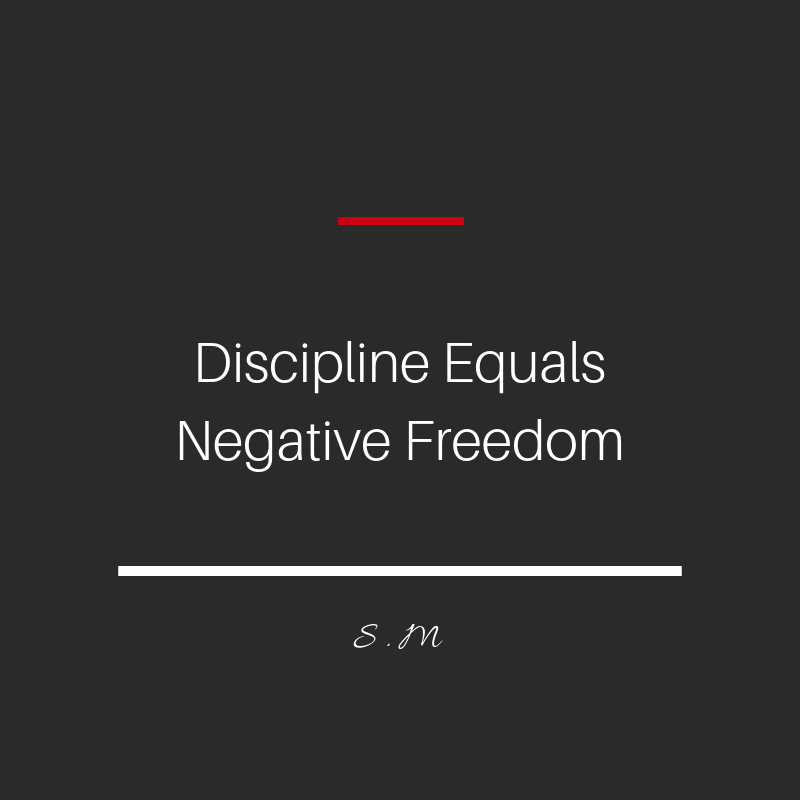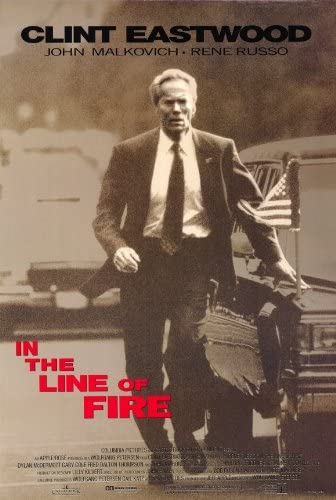Hello there,
Do you value freedom?
C’mon, who doesn’t?
Okay.
What does freedom mean to you?
Even better, what does freedom look like to you?
What is your first thought?
What is your nth thought?
//
9 out of 10 interpretations of freedom revolve around the tenet of zero or few constraints.
“Freedom to spend time as I please” or the constitution-esque: “Freedom of conscience, religion, belief, and opinion.”
Nothing wrong with that.
That’s one side of freedom. The exoteric.
Freedom has both an exoteric and esoteric meaning.
If you pay close attention, high achievers often speak of another kind of freedom.
“Only the disciplined ones are purely free in life and the indisciplined are slaves to their moods and passions.”
Eliud Kipchoge, the world’s best marathoner ever.
This is an introduction to Freedom from.
A type of freedom ushered in with a restrictive prelude…
Freedom to being the freedom to say “yes” and Freedom from the freedom to say “no.”
Achieving true autonomy in your life requires both.
As for my first elementary question. We all value freedom because we intuitively realize that freedom is true wealth.
It’s life without the tight shackles of society.
So you don’t have to wear a tie like a collar around your neck. So you don’t have to wake up at 7.00 am. And rush to work. And sit in commute traffic. So you don’t have to waste your entire life grinding all the productive hours away into a soulless job that doesn’t fulfill you. It’s really so that you are your own own sovereign individual.
Best re-read listening to —> this meaningwave.
Here we go!!
//
Freedom Is Binary
There are two kinds of freedom:
Freedom ‘from’ (negative freedom)- anger, instant gratifications, mood, fear, procrastination…etc
Not to be confused with
Freedom ‘to’ (positive freedom)- do whatever whenever wherever. Zero constraints.

Discipline is the ultimate building block for negative freedom. It locks in the desired behaviour, binds you to good habits, and restricts you from bad behaviour.
Negative freedom provides the foundation to exercise options (positive freedom) that are closest to what you most desire and want in your life.
Positive freedom, marked through optionality, is the pathway to the freedom that we all yearn for. Unbounded freedom.
//
What I Enjoyed Reading
You’ve likely heard the saying: “A jack of all trades is a master of none.” It warns against the futility of pursuing too many disciplines. Be a specialist, or you’ll be nothing.
It may surprise you to learn there’s actually an extended version: “A jack of all trades is a master of none, but oftentimes better than a master of one.” With a subtle addition, its meaning becomes inverted to tout the benefits of being a polymath (a.k.a. generalist).
Why is the former so common, and the latter so unknown?
Ninety-six percent of cancer patients claim to be in better health than the average cancer patient.
Ninety-four percent of professors say they are better-than-average teachers.
Ninety percent of students think they are more intelligent than the average student.
Ninety-three percent of drivers say they are safer-than-average drivers.
When I learned this, it shook my soul. At first, like almost everybody, I thought, “Yes, but I really am above average!”
Then I realized I was doing it again.
What would happen if we made all of our data public—everything from wearables monitoring our biometrics, all the way to smartphones monitoring our location, our social media activity, and even our internet search history?
Would such insights into our lives simply provide companies and politicians with greater power to invade our privacy and manipulate us by using our psychological profiles against us?
A burgeoning new philosophy called dataism doesn’t think so.
//
What I Enjoyed Watching

Fun Facts:
- The script for this movie was written more than 10 years before it ever hit the big screen.
- It was the first movie to receive Secret Service’s full cooperation in the production.
I found this political thriller to have one of the best cinematic dialogue I’ve come across between John Malkovich and Clint Eastwood.
If you’re looking for something fun, not too complex, but quite enthralling, this is for you.
It is a bonus if you just so happen to enjoy Malkovich’s voice – which IMO is the most authentic villain voice ever. He is the absolute KING of the deadpan persona.
My favourite scene is between John playing Mitch the antagonizer, who wants to kill the US President, and Clint acting as Frank, the Secret Service Agent.
//
Mitch Leary: Watching the President, I – I couldn’t help wondering why a man like you would risk his life to save a man like that. You have such a strange job – I can’t decide if it’s heroic or absurd.
Frank Horrigan: Now, why would a man like you want to risk his life to kill a man like that?
Mitch Leary: Don’t you have a psychological profile on me yet?
Frank Horrigan: I don’t put a lot of stock in them.
Mitch Leary: Nor do I. A man’s actions don’t equal the sum of his psychological parts. Doesn’t work that way.
Frank Horrigan: Just how does it work?
Mitch Leary: It doesn’t work, Frank. God doesn’t punish the wicked and reward the righteous. Everyone dies. Some die because they deserve to; others die simply because they come from Minneapolis. It’s random and it’s meaningless.
Frank Horrigan: Well, if none of this means anything… why kill the President?
Mitch Leary: To punctuate the dreariness.
Feel free to shoot me an email anytime with comments, critiques, and open-ended questions.
Till next Saturday, take care.
Happy weekend ?
Solomon Muigai.